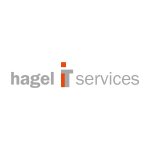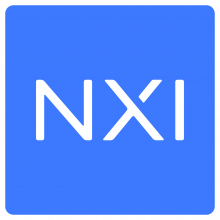
There are 29 Companies in Germany
that provide Hosting and Cloud Services!
Germany is home to the single largest IT market in Europe, accounting for around a quarter of the European market by value. Increased business demand for smart data products and services in the cloud is driving domestic IT market growth, as Germany embarks on a far-reaching program of digitalization that promises to transform the economy.
Discover Top IT Companies in Germany specialized in Hosting and Cloud and other related services. Find the best IT service providers for your projects.
Entrepreneurs often struggle to differentiate between cloud and hosted services, which may seem similar but differ in processes. Understanding these differences can help choose the right for your business. Pick the right home for your website involves considering technical aspects, reliability, cost, and customer support and other factors.
There are more than 330,000 web hosting providers all around the world, and this number is expected to grow as the Internet expands. Even with the fierce competition, new providers continue to enter the market. At the same time, data reveals that approximately 60% of all corporate data is now stored in the cloud. It has also witnessed a 10% increase compared to the previous year, 2021.
Handpicked companies • No obligation to hire • 100% risk-free
Featured Companies in Germany
This month, the following Hosting and Cloud companies managed to provide an outstanding service and support. It's worth taking a look.
Explore Top Hosting and Cloud Companies in Germany
Techgropse is a leading Mobile App and Web Development Company, dedicated to turning innovative ideas into remarkable digital solutions. 500+ Clients
Aroasis Softech is a leading provider of customized IT services and solutions, offering tailored digital transformations to businesses worldwide.
SaM Solutions is an international provider of IT services and software solutions with over 30 years of experience.
Your certified Magento and web design agency in Berlin! We offer customized, powerful and cost-efficient e-commerce solutions for your company.
We are the top custom web and mobile app development company in India, the USA, the UAE, Canada, and Australia.
Managed IT Services for your success. European excellence. Reliable IT that creates value.
Kulimo bietet professionelles, individuelles Webdesign, Webentwicklung und Business App-Entwicklung in Berlin.

Persistent Systems Verified Company
Frankfurt am Main, Germany Head office in: India
See Beyond, Rise Above
hagel IT-Services ist das IT-Systemhaus in Hamburg für Mittelstand: Managed IT, Cloud, IT-Security, Microsoft 365, virtuelle Arbeitsplätze,EDV-Service
360° Business solutions provider
Digital excellence: Tailor-made web solutions
seit 1999"IT-Systemhaus , Rechenzentrum und IT-Security , integriert aus einer Hand"

Frankfurt am Main, Germany Head office in: Poland
Infopulse, part of Tietoevry, is an international vendor of end-to-end digital services and solutions since 1991.
Empowers businesses with cutting-edge IT, AI development, and digital marketing solutions.
Entwicklung von Plattformen, Apps & KI-Lösungen für große & mittlere Unternehmen
Innovation as a Team Leading German IT-Consulting Startup
Nina Tech does custom Web Design and Mobile app Development
AcumenCog was founded in year 2019 with view of delivering quality innovation and services. We have specialised programs for budding startups, we are...
- 1
- 2
Filter Hosting and Cloud Companies in Germany by Cities
Find the right tech company near you or from a specific city. Some of the best companies might be located in smaller cities.
Find more Hosting and Cloud companies around the world
TechBehemoths is the world's most advanced and user-friendly platform to match IT Companies with real clients without hustle.
The German ICT Industry: Data, Companies and Predictions
Germany is home to the single largest IT market in Europe, accounting for around a quarter of the European market by value. Innovation comes as standard in an industry characterized by a thriving of small and medium-sized enterprises. Increased business demand for smart data products and services in the cloud is driving domestic IT market growth, as Germany embarks on a far-reaching program of digitalization that promises to transform the economy.
According to Payscale, the average salary of a web developer in Germany is estimated at around 3,500 EUR/mo - one of the highest in Europe, which defines the high demand on the market for digital services and products, but it also reveals the high-quality services companies based in Germany provide. According to Statista, the IT industry market in Germany is predicted to reach $75.48 billion by 2025, with IT Outsourcing dominating this market, reaching $32.15 billion. It has a CAGR for 2025-2030 of 3.33%, expecting a market volume of $88.94 billion by 2030. Germany is a leader in IT services, prioritizing innovation, and delivers high quality services.
Why Should You Work With German IT Companies?
Needless to say that the presence of tech giants in Germany, and their continuous investment in the local IT environment, is one of the basic indicators of a healthy IT industry. But, most importantly, the fundamentals of the IT industry in Germany are small and medium businesses that face tough competition, which in turn stimulates the growth and development of the entire IT ecosystem. Based on a report from the International Trade Administration, in 2025, the number of IT companies in Germany was above 100K, and Berlin only the most developed digital hub, was the home of 38K+ IT companies.
However, the main reasons for working with German IT companies remain a good business culture, rich experience, and skilled professionals.
What You Should Be Aware of When Working With a German IT Company
Despite the benefits of working with German companies, there are several factors that you should be aware of. First of all, the huge number of companies creates difficulties when choosing only one. It is possible to experience psychological fatigue due to the wide variety of good offers you may receive from German or German-based agencies. Despite these challenges, hiring a IT service provider from Germany can bring lower costs than other people expect, talented tech professionals, good education system, stable business ecosystem, productive tech experts, and attention to details.
Speaking of the differences between German and German-based IT companies, this is another challenge to make the difference in which type of company you contacted. There is a performance difference between the two types of companies mentioned above, but not always in favor of the first one.
Are German Companies Reliable?
German IT companies have probably the best reputation in Europe, especially due to the high number of projects they attract, but also based on the country’s business reputation in general. Even though more foreign companies from countries with questionable reputations relocated or declared themselves as German, the overall rating didn’t go down, but on the contrary. This may be explained by the fact that foreign companies would rather adapt to German rules and improve their reputation as well.
How the German IT Industry Relates to the Neighboring Countries
Having ¼ of the European market value, the German IT industry is considered to be the most developed, with the UK and France in second and third position, far behind it. In 2025, Germany holds approximately 19.7% of the market share, followed by the UK at 16.2% and France at 12%. Both countries have robust tech environments that dominates the European continent, with Germany that leads in high-tech industries, and the UK as a prominent tech economy.
What is Hosting and Cloud and what are its benefits for your projects?
Entrepreneurs often struggle to differentiate between cloud and hosted services, which may seem similar but differ in processes. Understanding these differences can help choose the right for your business. Pick the right home for your website involves considering technical aspects, reliability, cost, and customer support and other factors.
There are more than 330,000 web hosting providers all around the world, and this number is expected to grow as the Internet expands. Even with the fierce competition, new providers continue to enter the market.
At the same time, data reveals that approximately 60% of all corporate data is now stored in the cloud. It has also witnessed a 10% increase compared to the previous year, 2021.
Cloud Services
Cloud services are computing services provided by third-party hosts through the internet and on-demand. They allow customers to access and utilize remote computing resources effortlessly. There are three main categories of cloud: Software as a service (SaaS), Platform as a service (PaaS), Infrastructure as a service (IaaS).
Benefits of Using Cloud-Based Services
Cloud services offer several advantages that are not available with hosted solutions:
-
IT Optimization: With cloud services, the provider is responsible for building and maintaining all the hardware, so your IT department doesn't have to manage servers or install and update software on individual computers. Additionally, the provider is responsible for ensuring security and resolving any problems that might come up.
-
Budget-friendly approach: Cloud services offer a cost-efficient approach where you only pay for what you use. There is no need to invest in hardware or purchase software licences that may end up being unused by your team.
-
Business system integration: To integrate various third-party cloud solutions, you can streamline workflows and enhance team collaboration and productivity. For instance integrating your cloud communications platform with a CRM. Doing so ensures employees have access to customer information before they answer incoming calls and automatically logs all calls into the CRM.
-
Increase agility and scalability: Cloud services let you make changes in just a few clicks, whether you need to shift workflows, add new features and functionality, or change the number of users.
-
Support AI, predictive analytics, and IoT: With your data in the cloud, you can easily apply these advanced technologies to improve efficiency, gain new insights, and future-proof your business.
-
Support remote workforces: The workforce can access cloud services anytime, anywhere, using any device, with just an internet connection and login credentials.
Hosting Services
Hosted services, much like cloud-based solutions, are managed by a third-party provider and accessed through the internet. With hosted solutions, the provider owns and maintains physical servers in a private location rather than relying on a public cloud. This allows the service to be accessed online without the need for installing hardware or software. Users typically access it through a virtual private network or remote desktop.
Benefits of Hosting Services
Hosted services offer some of the same advantages as cloud solution, including:
-
Remote access and the ability to integrate with certain other cloud solutions. Because the software and hardware are maintained by the provider, there's also less for IT to manage than with traditional computing solutions (but typically more than with cloud solutions).
-
Offers greater customization options compared to cloud services, depending on the setup and service agreement.
-
Provide more control over security protocols, which is particularly beneficial for companies operating in highly regulated industries.
To Sum Up
Cloud services are a more cost-effective option compared to hosting services. They are easier to set up, manage, and maintain. Although hosting services offer more control, they require additional IT work and often come at a higher price. However, it's important to analyze your specific business requirements before deciding on a hosting type. At the moment Techehemoths has almost 800 Hosting & Cloud service providers.
Take a look at their profiles and feel free to contact them, the smart filters will also help you, Moreover, you can submit your project and our team will hand-pick and send you the best matching service providers, and you will get free quotes in about 1-hour. Also, if you want to learn more about cloud and hosting services, check out our blog for additional information.





















